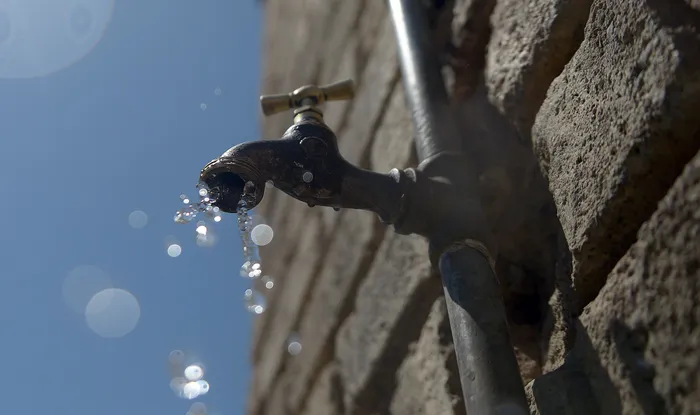
Tshwane is grappling with a dire water crisis, as alarmingly high consumption rates pose a significant risk of leaving residents without access to water.
Image: Oupa Mokoena / Independent Newspapers
The City of Tshwane is facing a severe water crisis, with excessively high consumption rates threatening to leave residents without water.
The city's reservoirs and towers have been dropping alarmingly over the past two weeks, with 16 high-consuming reservoirs identified as the main contributors to the problem.
Municipal spokesperson Selby Bokaba, said the demand in these areas is exceeding the city's supply capacity, forcing the city to surpass its licensed limit of 662 million liters per day. Currently, Rand Water is pumping 926 million liters per day, 22% more than the permitted limit.
Bokaba cautioned residents that a high water consumption is likely to put consumers at risk of having no water at all, even before the hot summer season starts.
“It has come to our attention that consumers who are supplied by these reservoirs are the main contributors to the overall high volume of consumption within the city,” he said.
He said the demand in the areas supplied by the identified reservoirs is exceeding what the city can provide, compelling the city to surpass its licenced figure of the amount of water it should source from Rand Water.
Bokaba said: “This high volume of consumption is continuously putting the city’s distribution network and Rand Water systems under severe pressure. It is against this background that customers are warned that if the current consumption practice does not change, they will experience prolonged water supply interruptions.”
He reminded residents that the Level 1 water restrictions that were imposed previously in line with the water supply by-laws, were never withdrawn and are therefore still applicable.
“The City of Tshwane will impose fines, restrict water supply or disconnect water supply to consumers who do not comply with the water restrictions,” he said.
He said the levels at which customers are consuming water restrictions are inevitable and are the only viable option to save the city’s distribution network from collapsing.
“The city urges all residents to make a concerted effort in decreasing the water usage by adhering to the water restrictions. Punitive measures will be imposed against transgressors,” Bokaba said.
The city's appeal for residents to conserve water follows a recent admission to the Portfolio Committee on Cooperative Governance and Traditional Affairs that Tshwane is struggling with significant water losses, estimated at 39%, largely due to theft and unbilled water usage.
Vuyo Zitumane, chief operations officer, also attributed the problem to ageing infrastructure, saying: "The newest city asset for both electricity and water is more than 50 years old."
To tackle the problem, Tshwane has formed a partnership with Denmark's City of Aarhus, prioritising leak repairs.
Additionally, the city has signed a memorandum of understanding with Rand Water to aid in leak detection and pipe replacement.
According to Zitumane, the city's master plan requires R2 billion to replace pipes and minimise water losses, but it only receives 25% of the necessary funding due to financial constraints.
To bridge this gap, the city is exploring alternative solutions, including potential partnerships with the private sector.
rapula.moatshe@inl.co.za